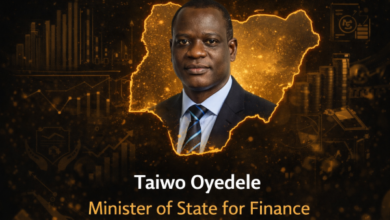
Algiers — Nigeria Customs Comptroller-General Bashir Adeniyi says efficiency, transparency, and innovation in customs will determine whether AfCFTA delivers real growth—adding that Nigeria will host IATF 2027 to showcase progress.
Speaking at IATF 2025—the continent’s marquee marketplace themed “Gateway to New Opportunities”—Adeniyi (who also serves as WCO President) stressed that customs reforms is no longer optional. He outlined Nigeria’s programme: end-to-end digitalisation of clearance, tighter risk-based enforcement, and capacity building—all aimed at faster, cheaper, more predictable trade.
IATF’s organisers project $44bn in deals as governments, investors and 1,000s of exhibitors connect. Adeniyi said the NCS is coordinating with peer administrations across Africa so that procedures, data and standards align with AfCFTA rules of origin and trade facilitation, positioning Nigeria as a regional hub for manufacturing and distribution.
He framed IATF 2027 (Nigeria) as a proving ground: a chance to demonstrate how technology-driven, transparent customs can cut dwell times, reduce informal costs, and anchor resilient value chains that keep more value on the continent.
Why It Matters (AfCFTA Execution)
- Lower trade friction: Digital, risk-based clearance compresses time-to-market and working-capital lockups for exporters.
- Regional competitiveness: Harmonised procedures make West Africa more attractive for near-shoring and assembly plays.
- Revenue with growth: Smarter enforcement curbs leakages while enabling high-volume compliant trade.
By the Numbers
- $44bn: projected deals at IATF 2025, Algiers.
- 2027: Nigeria confirmed as IATF host—platform to showcase customs modernisation.
- 3 reform pillars: Digitalisation • Enforcement • Capacity building.
What to Watch (12–18 Months)
- End-to-end e-clearance at Nigeria’s ports/land borders (paperless milestones, API links with other agencies).
- Risk management & AEO expansion (trusted-trader corridors for exporters).
- AfCFTA interoperability (rules-of-origin verification, data sharing with other customs).
- Dwell time metrics published quarterly ahead of IATF 2027.
BRANDECONOMY Take
AfCFTA won’t scale on tariffs alone; it hinges on ports, paperwork, and predictability. If Nigeria lands true digital clearance and interoperable controls with neighbours, exporters gain cost and speed—and IATF 2027 becomes a deal engine, not just a showcase. The scoreboard: dwell time, compliance costs, and AEO throughput—measured, published, improved.










